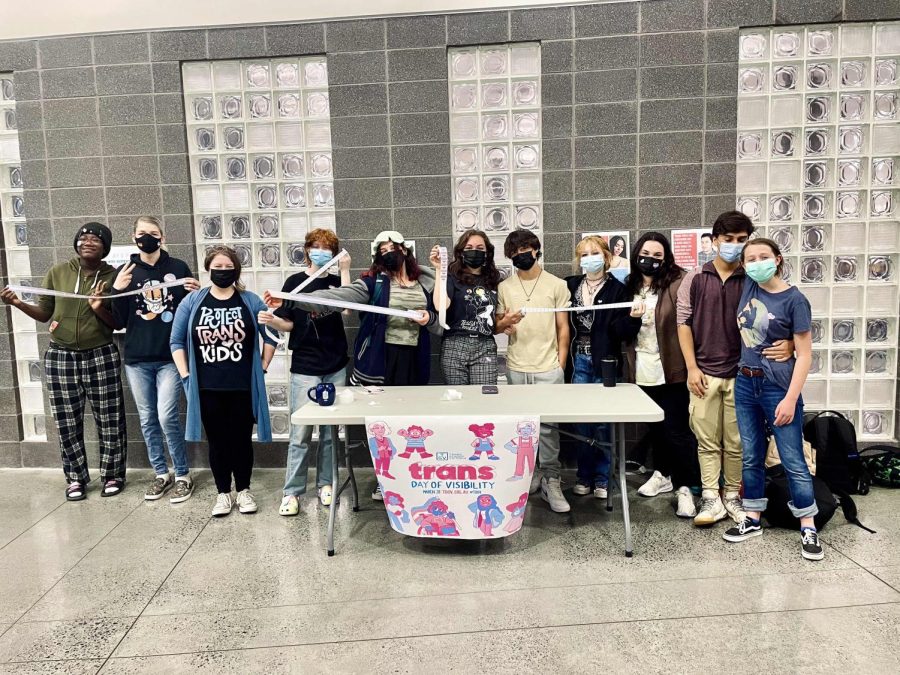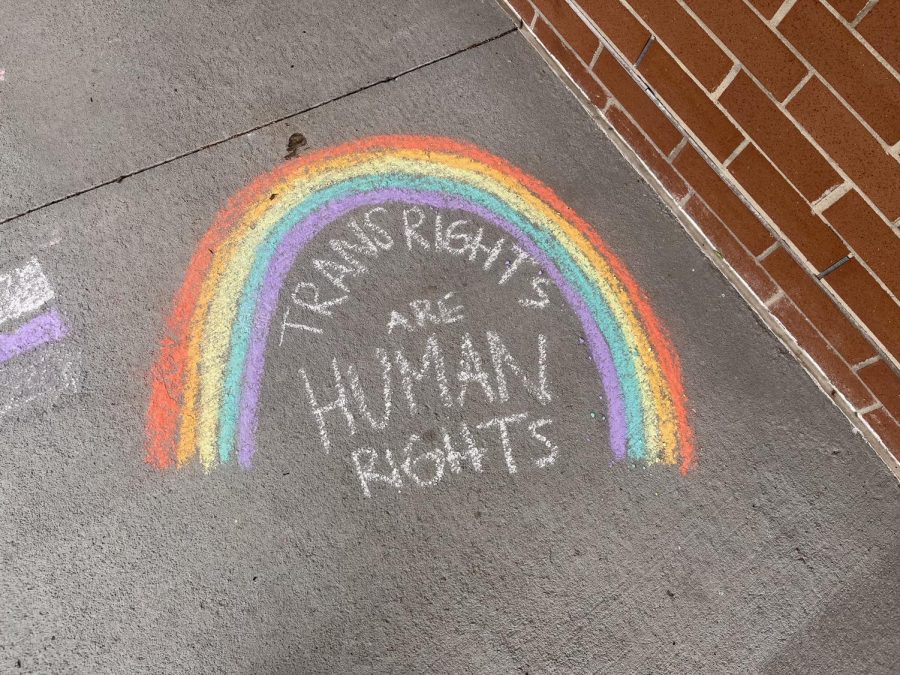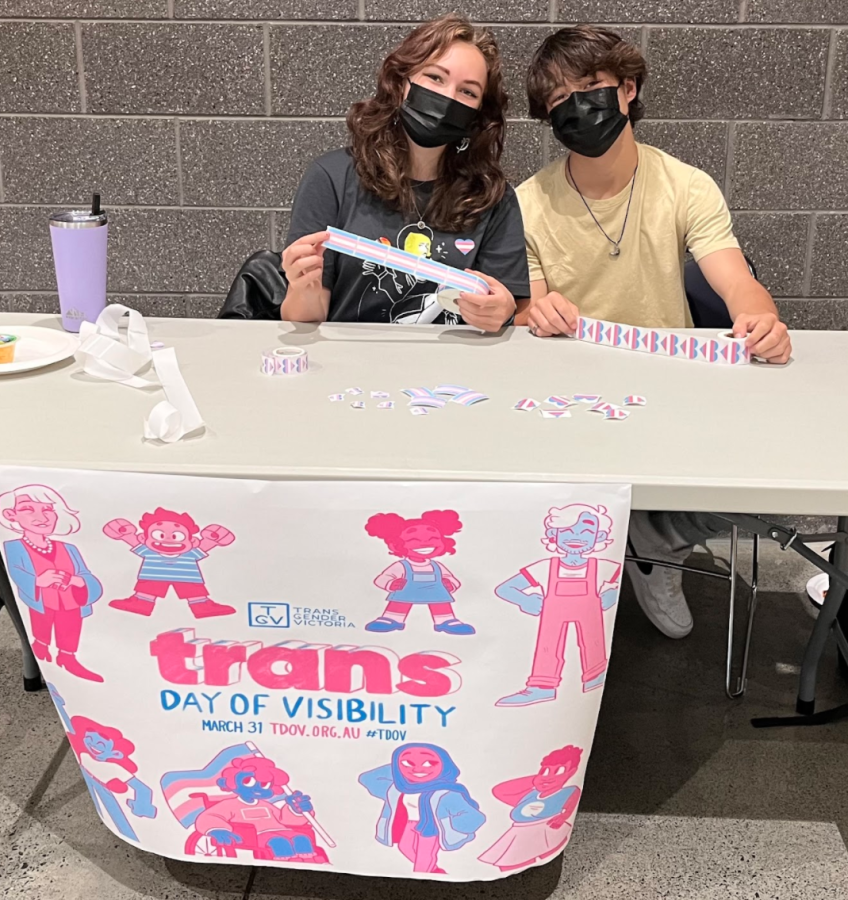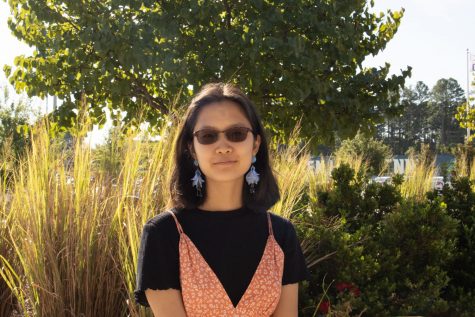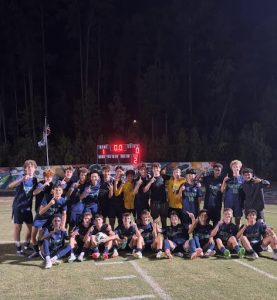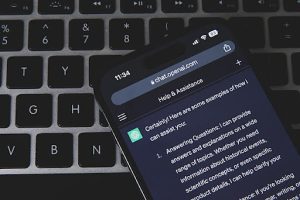Transgender Day of Visibility at Green Level
Trans Visibility booth stationed near the front entrance of the school.
April 4, 2022
March 31st was the International Transgender Day of Visibility, a day to recognize and uplift the people who face oppression of their identity on a systematic basis. Rachel Crandall created this day in 2009, only four years after transgender people were “legalized,” allowing people to legally change their sex. Furthermore, it has only been four years since “transsexualism” was removed as a mental disorder from the World Health Organization.
Jackie Turnwald is a trans non-binary/queer English teacher at Green Level and describes similar and worse experiences within their own personal and complex journey of gender identity, noting that while everyone’s journey is different, “Being a trans person anywhere is a collection of emotions and encounters, some immensely positive, some entirely neutral, and some that are exhausting and demoralizing.”
In Turnwald’s journey with their identity, they described growing up in an environment where queerness was often invisible or belittled. The process of coming out as trans non-binary was not an easy one as they had to, “grapple with the internalized homophobia and transphobia that one has as a result of growing up in a society that is systemically homophobic and transphobic.”
The school community is not immune to these systemic issues. Harshini Yedavelli is a genderfluid student at Green Level and says that while school does not feel like a threatening environment, it is not necessarily very inclusive either, “There are a lot of times that people don’t really understand what genderfluid is and what that exactly means or entails, even people I’m friends with and like.” They describe their frustration of having to explain their own identity so often and explains their wish for how the school would be more open about its own trans community, “We know that they exist and are within our community but there are no attempts to openly acknowledge and support them, this feels like the first.”
This first open acknowledgement of the community Yedavelli discussed was an effort being spearheaded by the LGBTQ+ Club. The club was spotted during the morning of March 31st handing out trans flag stickers before the bell at the school entrance and they also decorated the front of the outdoor entrance with colorful chalk to raise further awareness and visibility to the community.
The support and community made by students is something Turnwald noted in their experience as well, “I recognize now that many of my students saw me before I was ready or able to see myself.” Even at their short time at Green Level, Turnwald regards students positively, “I’ve especially appreciated how rapidly students became accustomed to the use of Mx. (general neutral honorific) that is used with my name.”
Currently, the trans community remains under attack: whether that be limiting student-athletes rights in competition or criminalizing gender-affirming healthcare. In fact, since the beginning of 2022, there have already been over 190 active bills targeted towards trans people in the United States.
In various forms, these bills limit visibility of trans people on a legal level and create safety issues for trans people. “In such moments, I’ve definitely felt unseen, unheard, or misunderstood, particularly,” Turnwald describes their reactions to these inequities, “However, I remain committed to being loudly visible, even though it sometimes makes the world harder for me. I’ve come to understand that my public existence has the potential to break down barriers and create psychological safety for people who are discovering their own gender identities. And really, I couldn’t be truly happy if I retreated from who I am.”
In the further steps to create visibility for trans people, Turnwald calls for a curriculum that includes more representative concepts, marginalized people included in policy-making, beginning conversations about topics like race and gender from earlier on, and being open to growth. “People want to highlight all the good work they’ve done and ways in which they’ve been an ally rather than acknowledge that they can still make a mistake. And that response can actually result in further harm by erasing a marginalized person’s experience,” Turnwald explains that being a good person and saying things that harm others are not mutually exclusive.
Resources Recommended by Mx. Turnwald: The LGBTQ Center of Durham, Rainbow Collective for Change, graphic novels like Gender Queer, queer elders in the community, queer affirming/safe medical practices, Gender Inclusive Schools, queer and trans creators on social media
Additional Online Resources for Students, Staff, and Teachers:
- Know your rights guide (ACLU) for Students
- Making clubs inclusive
- GLSEN Gender Terminology for Teachers

